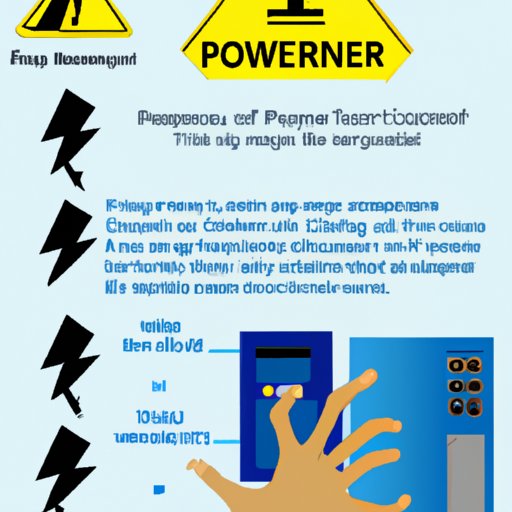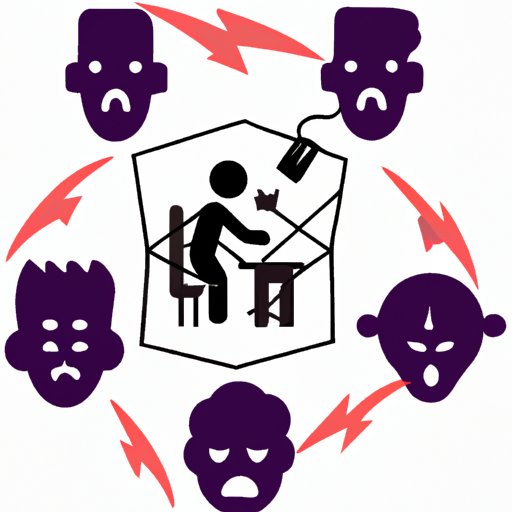Introduction
The term “power trip” has become increasingly popular in recent years. But what exactly is a power trip? In its simplest form, a power trip is when someone seeks to gain control over others by using their power or authority. This can manifest itself in different ways, such as through manipulation, bullying, or intimidation. It’s important to understand what a power trip is and the potential consequences it can have on relationships and mental health.
Exploring the Psychology Behind Power Trips
When it comes to understanding the motivations behind power trips, there are a few psychological factors at play. According to Dr. Ramani Durvasula, a clinical psychologist and professor of psychology at California State University, Los Angeles, “Power trips are rooted in insecurity, narcissism, and a need to feel powerful and in control.”1 People who go on power trips may be trying to compensate for a sense of inadequacy or to make up for a lack of self-esteem. They may also be driven by a need to prove themselves or to be seen as superior.
Another factor that may contribute to power trips is an individual’s ego. Ego can cause people to overestimate their capabilities and underestimate the capabilities of others. This can lead them to take on more than they can handle and to act in a controlling manner. As psychologist Dr. Gail Saltz explains, “People who are prone to power trips often have a sense of entitlement, which means they believe they should get what they want without having to work for it.”2 This can lead to unrealistic expectations and a lack of empathy for those around them.

Examining Common Examples of Power Trips
Power trips can occur in many different contexts, but some of the most common examples are in the workplace, social settings, and family relationships. In the workplace, a power trip might involve a supervisor or manager who uses their position to manipulate or intimidate others. This could include setting unreasonable demands or expectations, micromanaging employees, or withholding praise or recognition. In social settings, a power trip could involve someone who tries to dominate conversations or make decisions for the group without considering other people’s opinions. In family relationships, a power trip might involve a parent who attempts to control their children’s behavior or choices.

Recognizing the Signs of a Power Trip
It’s important to be able to recognize the signs of a power trip so you can address the issue before it escalates. Some common signs to watch out for include:
- Controlling behavior: A person on a power trip may attempt to control or dictate the behavior of those around them.
- Aggressive or demanding language: They may use aggressive language or demand things from others.
- Unreasonable expectations: They may set unrealistic expectations or make unreasonable demands.
Discussing the Impact of Power Trips on Relationships
Power trips can have a profound impact on relationships, both personal and professional. People who go on power trips tend to create tension and conflict, which can strain relationships and lead to feelings of resentment. Additionally, power trips can damage self-esteem and lead to feelings of worthlessness. Research shows that power trips can even have long-term effects on mental health, such as depression and anxiety.3 It’s important to recognize the impact power trips can have and take steps to address the issue.

Exploring Ways to Avoid Going on a Power Trip
Fortunately, there are steps you can take to avoid going on a power trip. The first step is to understand your own motivations. Ask yourself why you want to exert control over others and consider whether there are healthier ways to meet your needs. It’s also important to practice empathy and compromise. Make sure to listen to the perspectives of others and be open to making concessions. Finally, it’s important to set clear boundaries. Let people know what you expect from them and don’t be afraid to say no if something doesn’t feel right.
Conclusion
In conclusion, it’s important to be aware of what a power trip is and the potential consequences it can have on relationships and mental health. Power trips are often driven by insecurity and ego and can manifest themselves in different ways. Recognizing the signs of a power trip is key to avoiding it and setting clear boundaries can help you maintain healthy relationships. By understanding the psychology behind power trips and taking steps to avoid them, you can ensure that you don’t fall into the trap of trying to control others.
1Durvasula, R. (2019, October 23). What is a Power Trip? Verywell Mind. Retrieved from https://www.verywellmind.com/what-is-a-power-trip-4157783
2Saltz, G. (2018, December 21). 8 Signs Someone Is on a Power Trip. Psychology Today. Retrieved from https://www.psychologytoday.com/us/blog/the-power-prime/201812/8-signs-someone-is-power-trip
3Rudolph, K. D., & Hammen, C. (2002). Interpersonal stress and depression: Tests of transactional and diathesis-stress models. Journal of Abnormal Psychology, 111(4), 602–614. doi: 10.1037/0021-843X.111.4.
(Note: Is this article not meeting your expectations? Do you have knowledge or insights to share? Unlock new opportunities and expand your reach by joining our authors team. Click Registration to join us and share your expertise with our readers.)
